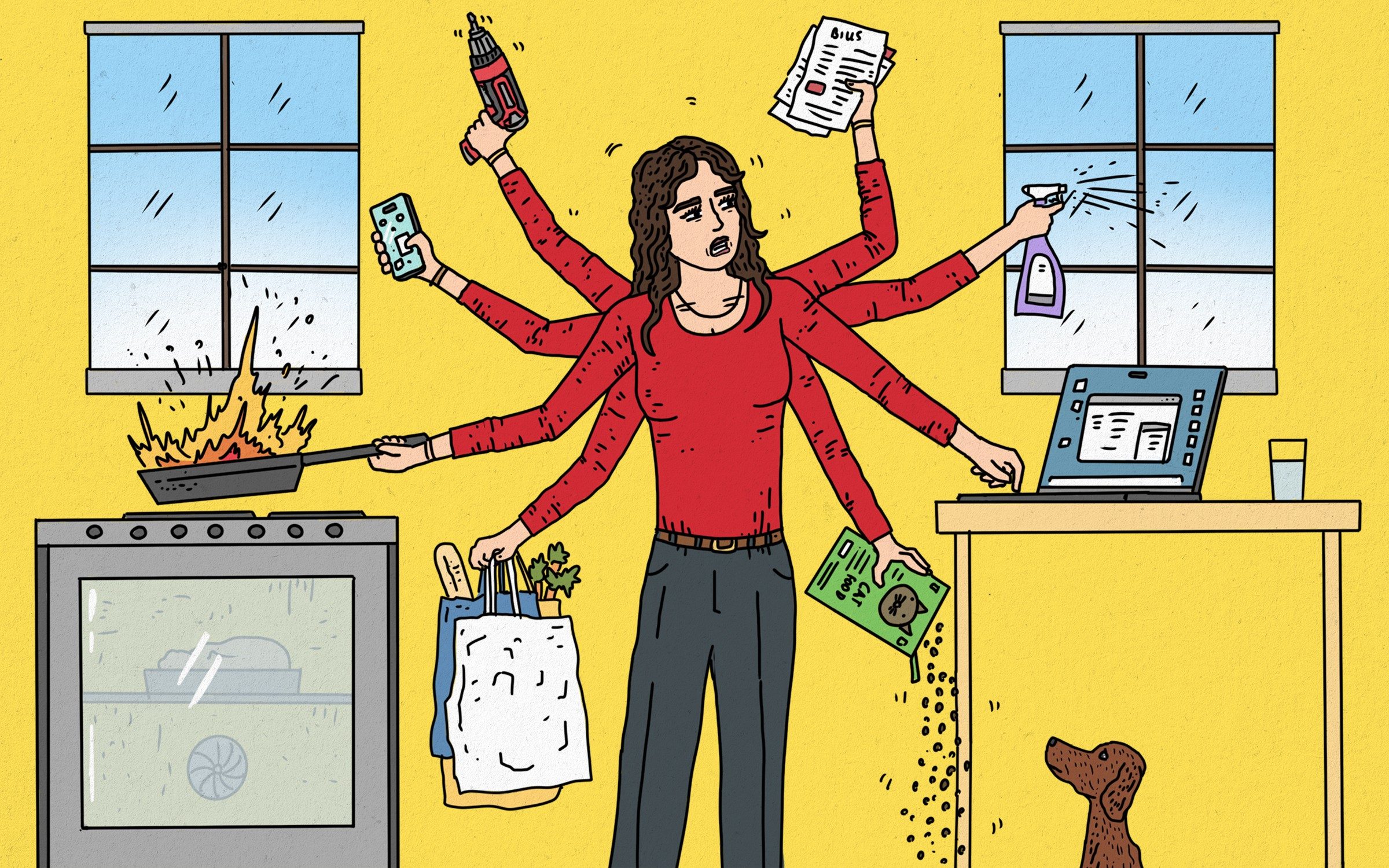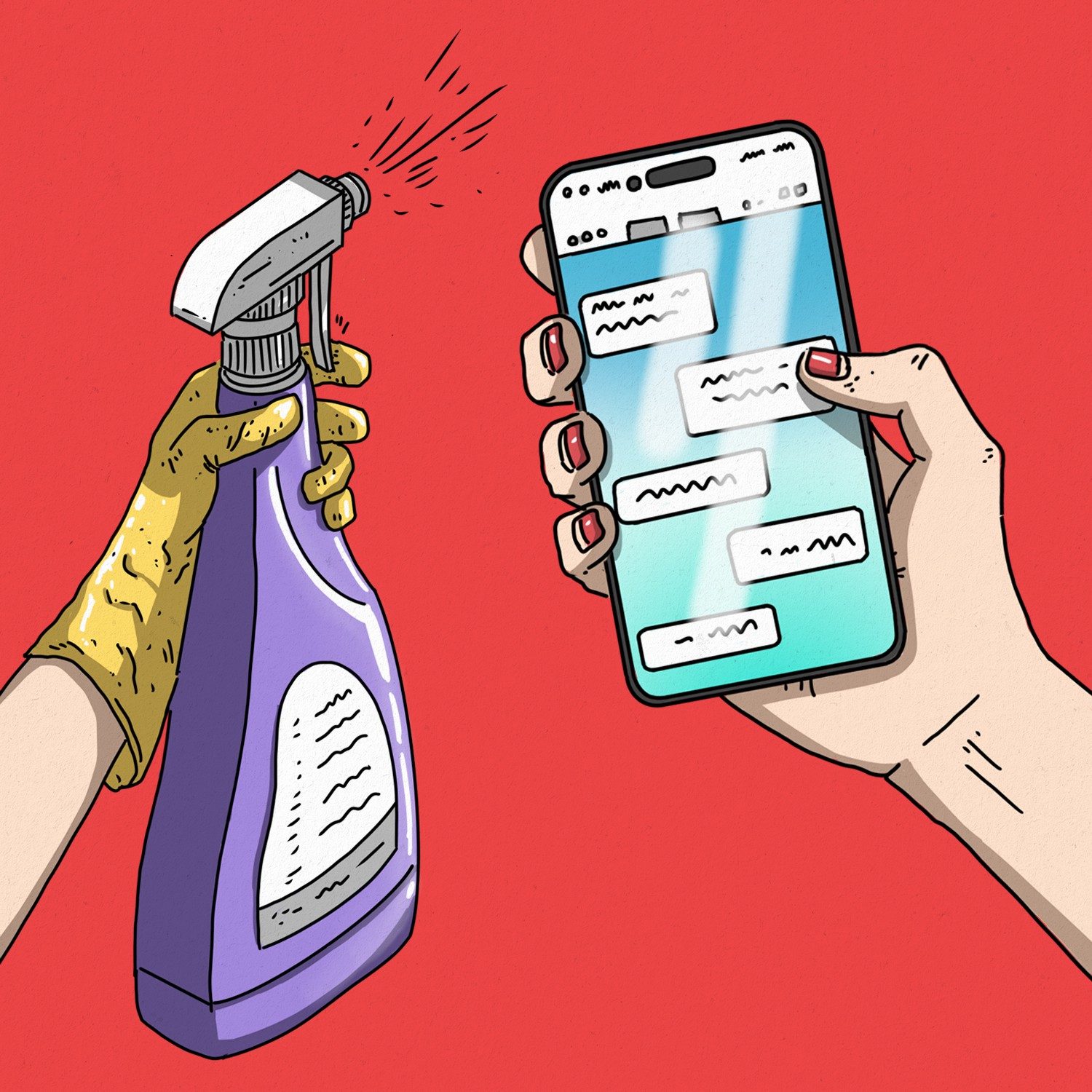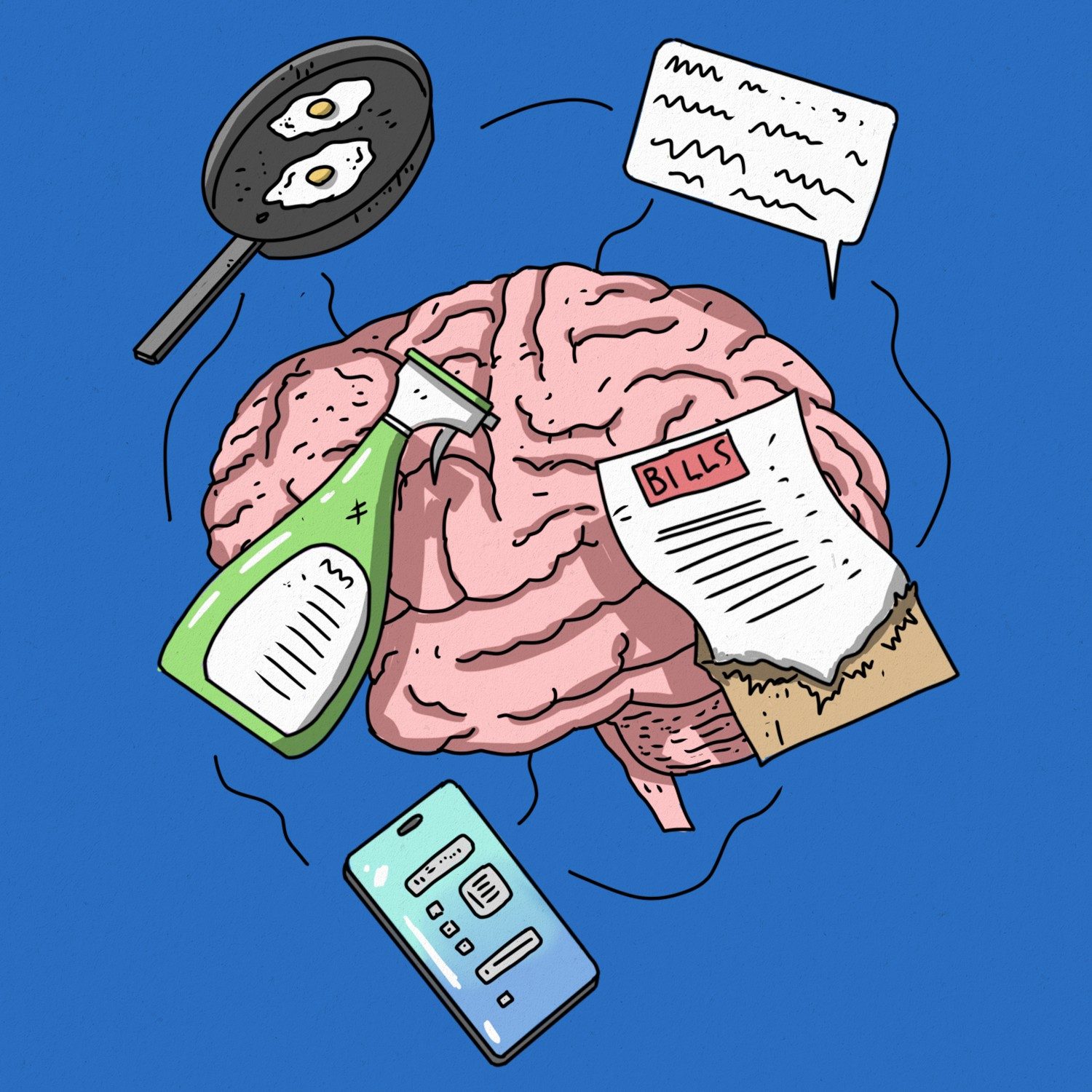
I am one of life’s busy multi-taskers. I can cook dinner as I chat to a friend on the telephone, while also answering a work email, feeding the dog and compiling a shopping list for a forthcoming birthday celebration. Except, the trouble is, I forget to add salt to the chicken, I miss something important my friend tells me, the email is grammatically wrong, the dog gets the cat’s food and I put the list down somewhere, never to be found again.
Multitasking is brandished as an exceptional life skill; flaunted on CVs as a “must-have attribute” and held up – often by women – as a superpower. Yet studies show that multitasking is a bit of a myth. Yes, you can carry out tasks in succession; you can even manage them at super speed if you are that way inclined. But once they start overlapping, things tend to go skew-whiff. Perhaps that explains why yesterday, when I was writing an article for this paper and trying to listen to my husband explain why the fridge had stopped working, he accused me of not paying attention.
I tried a falsely assertive, “I heard everything you said.” But not being a buffoon, he sussed that my vacant stare was emblematic of a confused brain. I’m loath to admit it, but it’s true – my grey matter often can’t cope with more than one thing at a time. So, perhaps I am not the competent multitasker I once claimed to be. How will I ever manage to get everything done now?
Why do we feel the need to multitask?
holding her own in a heated conversation about the economic state of this country. Like many of us, she has been put on a precarious pedestal. Not only does a confirmed multitasker feel the mental pressure of their so-called demanding label, but the stakes are upped when it comes to danger and risk. Hands up if you can admit to any of the following… Driving and looking at your phone. On a zoom call and checking emails. Boiling a pan of water and trying to recall where you left your keys.

Dr Roz Halari, a consultant clinical and neuropsychologist at The Soke, a mental health centre in London, says, “Multitasking really does affect productivity and efficiency. We are not as focused and the brain processes information slower, so we are more likely to make mistakes. That might mean not understanding something correctly, or missing out on crucial information or, more seriously, having an accident that could endanger you and others.”
Can we really multitask?
Most experts agree that it is extremely difficult. But it is possible if the tasks are not too taxing on our brain’s capacity and we carry them out on autopilot, like driving a car and listening to the radio, or taking a walk while chatting with a friend. But more complex tasks demand more attention, and that’s when it becomes nigh-on impossible to do two things at once.
So, in fact, it’s more likely we are actually “task switching” – rapidly moving from one task to another. There is still a downside to jumping from task to task. The brain must work harder to unscramble the competing information, and so focus and accuracy is lost. That’s why you might experience that twilight moment when you stop to stare into space and wonder, “Now what was I just trying to do…?”
. One study by the American Psychological Association found that multitasking can actually slow down productivity by 40 per cent. It may say “great at multitasking” on your CV, but, in fact, it could scupper your reputation and chances of success at work.
There are other repercussions too. Professor Nilli Lavie, a cognitive neuroscientist at UCL University, says, “Our brain-imaging studies have shown that too much information at once can cause ‘inattentional blindness’ and even deafness, where a person temporarily stops seeing and hearing certain things because the brain doesn’t have the capacity to process it all.” While efficient multitasking eludes most of us, Lavie’s research does in fact reveal that some individuals with more grey matter in their frontal cortex – the part of the brain that influences goal-oriented behaviour, attention, planning and organisation – are able to do it. However, other studies suggest these exceptional beings remain in the minority, with just 2.5 per cent of human brains showing such aptitude.
Why multitasking saps our health
. On the surface they appear to be organised and efficient, but they are internalising the pressure of trying to do it all.
, blood pressure, overeating and autoimmune diseases. “These people are fatigued to their core”, she says, “There is no let-up and they don’t know how to stop taking on more. Burnout is a real risk factor.”
Dr Halari has noticed the impact on memory in her patients who engage in chronic multitasking. “When your brain is constantly switching focus, you are processing data on a superficial level and so the capability to hold on to detail and facts is lessened. Recall and memory suffer as a result. How many of us have answered the phone while unpacking the weekly food shop, then later wondered why the washing up liquid is sitting in the fridge?”
Multitasking doesn’t help our relationships either
I often wonder if I am a good listener. I’d like to believe I am, but my family frequently accuse me of not hearing what they’ve just said. Hand on heart, I do try, but I know my mind is often waylaid by the next chore on my list of things to do. So, if I am thinking about booking the dog’s grooming appointment while cooking a roast lunch, can I really be paying attention to my son’s tale of what happened at his latest football match? I’ve started asking myself, is multitasking worth it when it means you are absent from the nuances of your kids’ life?
Freeman expands on those clients of hers who feel overloaded by multitasking. “They can miss out on crucial relationships by veering towards hyper-independence, which basically means they are extremely self-reliant and avoid asking others for help. But this can impact important connections, because people feel pushed away, or powerless to offer support. The multitasker can’t admit they are struggling, while friends, family and colleagues become frustrated by their insistence to carry on regardless. You end up with both parties feeling isolated and even resentful.”
Again, I wonder if this applies to me? Friends have previously remarked that I never ask for help. I’ve always worn my ability to cope as a badge of honour, but am I alienating myself from those I love and driving them crazy with my dogged autonomy?
Being a mono thinker is the way forward
, where flitting from one task to another is typical.
Dr Halari agrees that the benefits of “getting the job done” are significant. “The sense of accomplishment helps improve a person’s confidence and self-esteem, plus resilience and concentration improve. And the more you practise monotasking, the more the brain performs accordingly,” she says.
stretched to capacity when trying to cram too much information from a multitude of tasks at the same time. The brain simply can’t process all the information and so you are more prone to missing parts, which can result in errors and being less productive. It is far better to schedule tasks so that each can get your full attention. Our research also shows that people say that they feel happier when they can focus their attention on what they are doing.”
, Dr Nerurkar talks about how the brain loves compartments and rituals. She says, “Just like your brain is wired to monotask rather than multitask, you are your most fulfilled, productive and actualised self when you’re not being forced to multipurpose.” Sounds like a dream to me. Finally, I have concrete proof that the purpose of my existence isn’t to keep life in perpetual motion like some plate-spinning maestro who bedazzles the expectant circus crowds with their prowess. I can take my time and adopt a more steadfast approach. What a blessed relief.

What actually happens to your brain when you multitask
Recommended
What your list-making technique says about you
Read more
Play The Telegraph’s brilliant range of Puzzles - and feel brighter every day. Train your brain and boost your mood with PlusWord, the Mini Crossword, the fearsome Killer Sudoku and even the classic Cryptic Crossword.


Post a Comment
0Comments